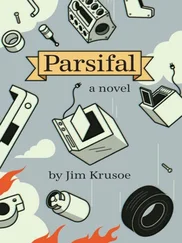“Instinct,” Dr. Barry Schwartz repeated, breathing heavily. He touched the rim of his small, dark, Tyrolean hat, which for some reason or another in all the time she had known him she had never even once seen him remove from his head. Then he shut his eyes, reached up to his hatband, where he found a small, colorful duck feather, and he rubbed his index finger lightly over the feather’s top.
He opened his eyes again. “Instinct, Tammy, is your only weapon, and, yes, you are a therapist and are there to help this man. Yet, on the other hand, it’s not a coincidence that many individuals who need help are also dangerous, and now something (your instinct) is telling you to get out of your chair. So do it! Make up some ridiculous excuse, such as you have to use the bathroom or check your parking meter, and, once you are out of his sight, run, run, run to your car and lock the doors. Then, take your cell phone and call 911, because though the person waiting for you in your office, with its cheerful curtains and Persian or Turkish carpet, the person currently checking the clock given to you by a major pharmaceutical company to see how long you’ve been gone, is needy, very needy, and in pain, tremendously in pain, and although your professional obligation is to return and help him, your instinct is correct: he is a monster and you should flee.”
Dr. Barry Schwartz picked up his favorite pipe, a meerschaum carved in the image of Sigmund Freud, from where it had been lying on the desk and sucked in hard, very hard, even though it was currently empty of tobacco. A filthy habit, Tammy thought back then, and one she still abhors.
And what does any of this have to do with Junior’s visit?

Tendrils, growing things, reaching out of the soil into what? And for what reason other than to grow?

Not that Jeffery’s future television show, which will be called The Burrow , is the only seed in his creative garden. He’s also thinking about a children’s book, or maybe a screenplay for a children’s movie, though he should probably work on the book first, then the movie after that to cash in on the success of the book, which will be called Speedy Jack . It will be about a dog named Jack whose back legs are cut off in an accident and who is fitted with a new kind of canine prosthesis made out of old automobile leaf springs, so that while wearing his new rear legs, Jack can jump even higher than before, and run a lot faster, too.
So the book will start, naturally enough, with Jack as a happy young dog. Then comes the story of the accident and, after that, how Jack practices with his new legs until he becomes super comfortable wearing them, first having races with other dogs and winning, then going on to racing deer and antelope, and beating them all until one day his owner takes him to Africa, where Jack races a cheetah, the fastest animal on earth, and Jack winds up winning, seizing the title of fastest animal, at least for the duration of his life, from the disappointed cat. Finally, in the end, Jack will actually turn to face his readers and explain how grateful he is to have had the accident in the first place, because without it, none of his other adventures would ever have happened. In other words, Jeffery’s book will teach children in a subtle way that sometimes life throws people curves, but with hard work and a positive attitude, even a bad situation can be turned around.
It’s a narrative, Jeffery thinks, that will write itself once he can figure out one thing: what kind of accident will set Jack’s story in motion. He’d like to have Jack trying to save someone, but at this very moment it’s hard to imagine how that would work, exactly, when it’s his rear legs, not the front ones, that will have to be cut off. How do you lose your rear legs unless you are running away? Also, if Jack had only tried to save someone and failed, there would be a dead person somewhere, and that could be a problem for children. Plus, there’s the fact that no matter if someone was or wasn’t saved, there’s an accident, which means there’s bound to be a lot of blood, and some parents might object, even though Jeffery plans to have Jack’s owner standing by, watching the whole thing, and because his owner is a doctor he’ll know exactly what to do to keep the bleeding to a minimum — probably tourniquets or something — followed by a rapid operation.
The doctor part makes sense because it will also explain how Jack gets to have a special prosthesis made, while most dogs that have their back legs cut off, whether in the process of saving someone’s life or not, just die. So in the book it will be clear this isn’t a normal event, but is made possible because the doctor knows the perfect person to call who can make Jack a new set of legs, so children will also learn how important it is to know the right people as they go through life, and this person, the prosthesis maker — though he will almost certainly lose money on the deal — makes a pair of them for Jack because he hopes for a ton of referrals from the doctor in the future. In addition, the prosthesis maker decides that the publicity that will come from Jack being a celebrity can only help his business with other doctors as well. In this way the children will learn there’s usually a quid pro quo to most things in life.
So it’s never too late, Jeffery thinks. The only problem is that original accident. Now what could it possibly be?

TRANSCRIPT OF CONVERSATION FROM THE TECHNICAL STAFF
Tech #1:
How much do they know?
Tech #2:
Just enough, no more. They’re not kept in the dark, exactly, but in a kind of twilight sleep, essentially the same as for a colonoscopy, or when they operate to remove certain growths — not quite awake, but still believing they are here — in a place, wherever that is — in their minds that has not gone away.
Tech #1:
And do you ever weep for them?
Tech #2:
Are you kidding? Would you weep for a small bird caught in a storm?
Tech #1:
And are there a lot of them out there?
Tech #2:
A whole lot, and not just the ones that you and I are in charge of, but all the rest being taken care of by other staff like us.
Tech #1:
Oh. So what’s it like outside right now — can you tell?
Tech #2:
It’s getting dark. Not dark yet, but heading there.

Has Viktor ever attempted to act like something other than a pig? Well, of course he has — who wouldn’t? It’s not as if he hasn’t tried other animal behavior— something more expansive — a horse’s, for example, or a lemur’s, smaller but cute.
To illustrate just one occasion: Once in the seventh grade, he offered his lunch to a girl who’d left hers at home and so she arrived at school with nothing to eat. She was a pretty girl with long blond hair, so it’s true that there may have been self-gratifying motives at work in Viktor’s mind, but then, after she accepted his offer, she just got up from where she was sitting, the place where Viktor had sat down next to her, and walked to a spot two tables away and unpacked Viktor’s lunch, enjoying one after another of his favorite foods, including a fudge brownie, an item his mother never ever put in his lunch before and, had he known it would be there, he most certainly would never have shared. Viktor just went hungry.
Читать дальше













